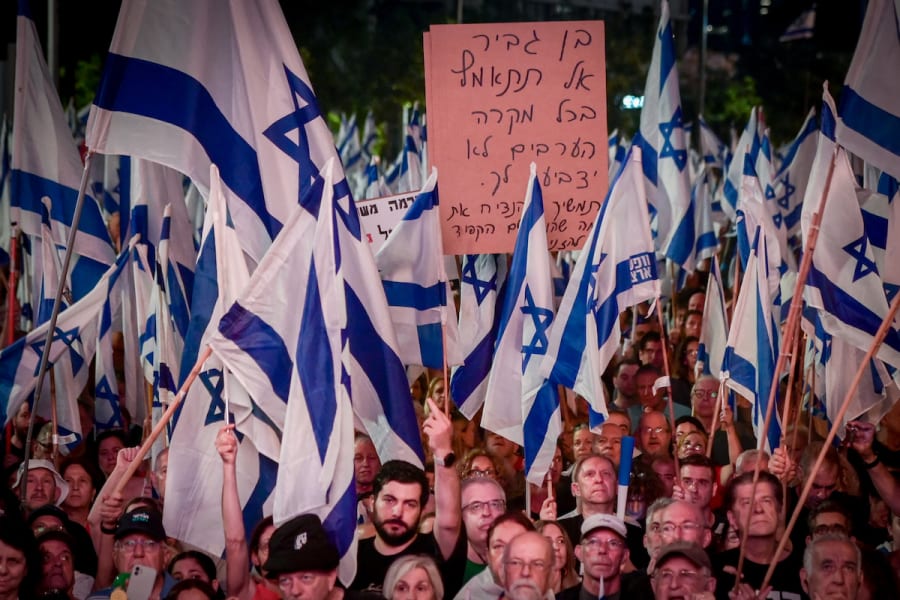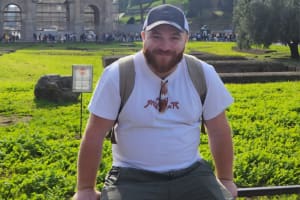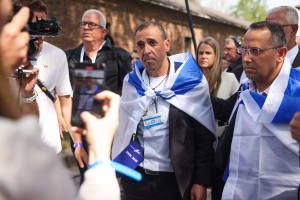Judicial reform protests enter 23rd week, turnout drops for second week
Protestors focus on Judicial Selection Committee and violence in Arab sector

Judicial reform protests were held for the 23rd week across the country on Saturday evening.
The number of protestors has dropped in recent weeks, especially following the passing of the coalition budget.
Many protest leaders had warned that the coalition would immediately resume voting on judicial reform legislation following the budget approval.
So far, Prime Minister Benjamin Netanyahu has not pushed to resume voting, despite saying that judicial reform would return to being the focus.
Following the approval of the budget, Netanyahu also said he wanted to continue efforts to achieve “a broad consensus.”
“We will, of course, continue with our efforts to arrive at a broad consensus agreement, to the extent possible, on the issue of judicial reform,” Netanyahu said at the time.
As with the previous week’s protests, Saturday night saw a smaller crowd of protestors than when judicial reform legislation was actively being debated during the Knesset Constitution, Law and Justice Committee meetings.
This week, protest events in Tel Aviv began with a moment of silence for Arabs who have been murdered in their own communities.
Israel has seen an alarming rise in violence within the Arab sector this year, with 100 Arab citizens killed since the beginning of the year.
Israel's Channel 13 news estimated that there were approximately 82,000 protestors attending the demonstrations on Kaplan Street in the bustling city center of Tel Aviv. Last week’s protests saw around 95,000 protestors gathering at the site.
Former Prime Minister Ehud Barak addressed protestors in Haifa, where he called for non-violent civil disobedience.
“We are determined and we will save democracy. Netanyahu understands that if he tries again [to pass the reforms], he will run into an iron wall,” Barak said.
Barak also called for ending the negotiations taking place under the oversight of Israeli President Isaac Herzog.
“We must intensify the protest and end the negotiations immediately,” Barak said, adding, “The protest must intensify and move into a civil uprising. Non-violent civil disobedience.”
Hungarian protest leader Katalin Törley spoke at a protest in Modiin, saying that Israel’s coalition government is following in the footsteps of Hungarian Prime Minister Viktor Orban, who has restricted some civil liberties.
On Wednesday, the Knesset is set to vote on the two representatives to the Judicial Selection Committee.
Traditionally, one coalition and one opposition member are chosen. This year, the coalition has threatened to appoint two of its own representatives.
Opposition leaders have threatened to end compromise negotiations if that happens.

The All Israel News Staff is a team of journalists in Israel.














